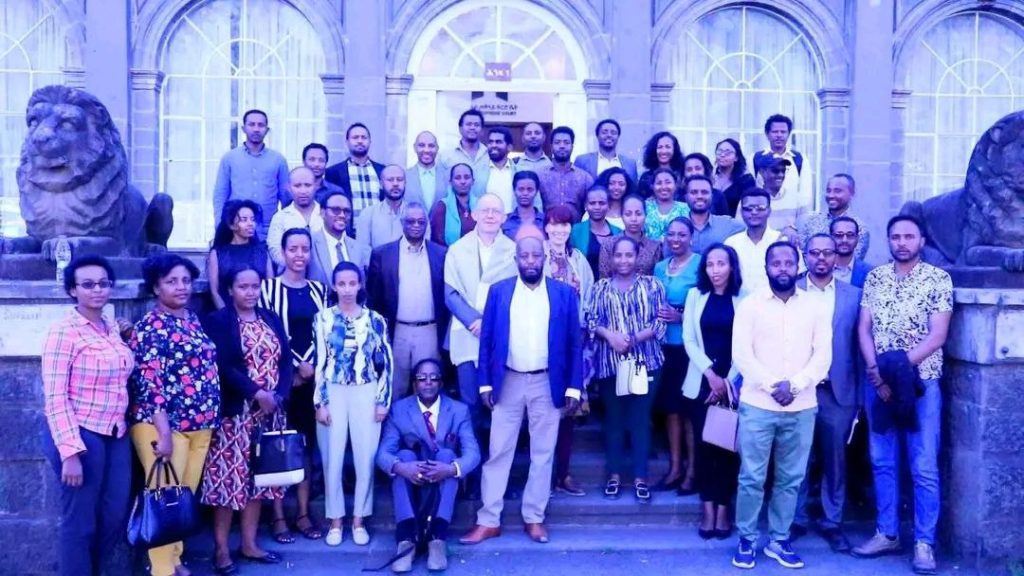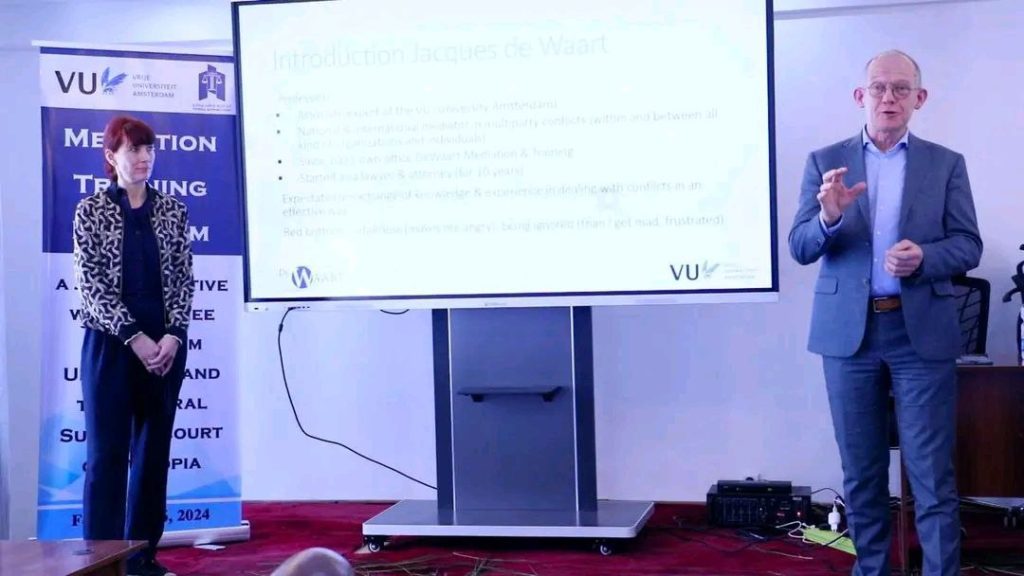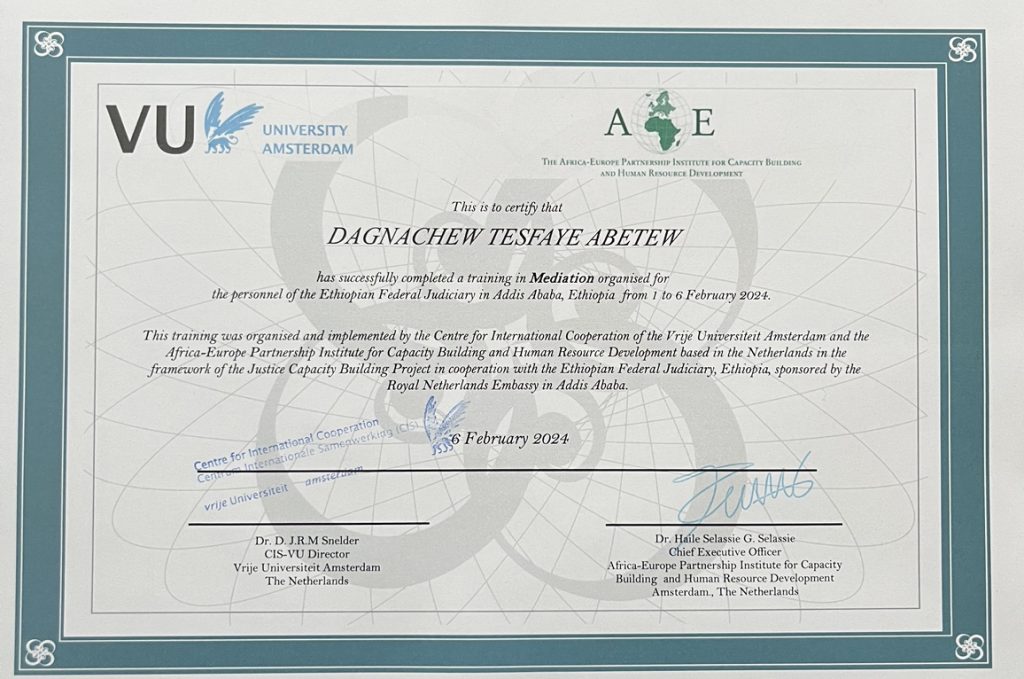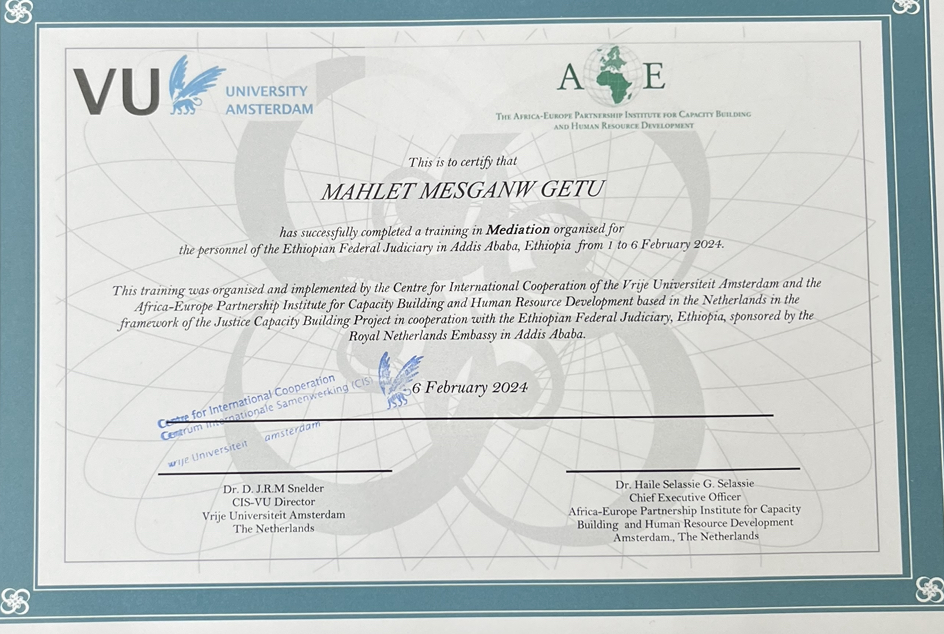Bitcoin in Ethiopia and the Legal Regime
By Geda Yoseph, Associate at DMLF

Introduction
Bitcoin is the first decentralized digital currency that allows peer-to-peer transfers without any intermediaries such as banks, governments, agents, or brokers, using the underlying technology of blockchain. Anyone around the world on the network can transfer Bitcoins to someone else on the network regardless of geographic location; you just need to just open an account on the Bitcoin network and have some Bitcoins in it, and then you can transfer those Bitcoins. Bitcoin can be used for online purchases and or as an investment instrument. Primarily it’s used to buy goods and services. On the other hand, Bitcoin mining refers to the process of validating and recording transactions on the Bitcoin network. The primary purpose of Bitcoin mining is twofold: validating transactions to prevent fraud and adding new blocks to the blockchain, thereby creating new Bitcoins in a decentralized manner.
Trading of Bitcoins and other cryptocurrencies remains mostly as an unregulated activity. Cryptocurrencies have three core characteristics: decentralized, unregulated, and quasi-anonymity. However, this does not mean that cryptocurrencies do not have self-regulation protocols. Cryptocurrencies such as Bitcoin have their own self-regulating protocol. Bitcoin is an internet-based cryptocurrency. Individuals can earn Bitcoin by trading, mining,and payment for services. As of January 2020, over 160 international branded companies accept Bitcoin for their services and products. This indicates that cryptocurrencies are becoming the payment system of future generations.
Advantages of Bitcoin
Both Bitcoin and traditional currency are similar in that both are a store of value, they differ in many ways. First things first, Bitcoin is the first and most recognized cryptocurrency, a digital currency that is secured by cryptography. Bitcoin has several advantages as compared to traditional fiat currencies, assets can be transferred faster on the bitcoin network. The system also has lower transaction fees, because it’s decentralized and there are no intermediaries, and it is cryptographically secure; the identities of the sender and the receiver are kept hidden, and it is impossible to counterfeit or hack the transactions. Plus, all the information is available on a public ledger, so anyone can view the transactions. Hence, Bitcoin plays a significant role in attracting investors from different countries by facilitating financial transactions.
Bitcoin in Ethiopia
Bitcoin is a simple and secure way to enter crypto mining. Ethiopia has now seen Bitcoin networks and clubs, such as Bit Club and AWS Mining, across the country, and more and more people are investing in them. In February 2024, it has been reported that the Ethiopian Government’s investment arm, Ethiopia Investment Holding (EIH) signed a Memorandum of Understanding with Honk-Kong-based West Data Group’s Center Service PLC to commence mining bitcoin. Moreover, according to the Reporter, in May, 2018, a Memorandum of Understanding (MoU) was signed between the Ethiopian Ministry of Science and Technology (MoST) and Input Output Hong Kong (IOHK) for the use of blockchain application platform called Cardano, a type of blockchain record management platform used in Ada cryptocurrency.
Bitcoin Mining
According to data from Bitcoin mining services company Luxor Technologies, in 2023, Ethiopia ranked fourth behind the USA, Hong Kong, and Asia as one of the top destinations for Bitcoin mining rigs. Russian bitcoin mining company Bitcluster has already built the first bitcoin mining facility, and companies such as Hashlabs Mining have started building bitcoin mines in Ethiopia for their global clients. Ethiopia is positioning itself as a leader in the data center space in Africa, which is estimated to grow to $5.4 billion by 2027, according to Aritzon Advisory and Intelligence. The economic benefits of Ethiopia strategically leveraging its abundant energy resources for Bitcoin mining are vast and far-reaching. It is only a matter of time before other African nations join the bandwagon.
Regulating Bitcoin
In order to determine the legal status of bitcoin under the current Ethiopian legal framework, it is important to review the proclamation that establish the NBE ,the National Payment System Proclamation and proclamation that establish Information Network Security Administration (INSA). According to the National Bank of Ethiopia Establishment Proclamation, Proclamation No. 591/2008, Article 5(1), the NBE has the power and duties to coin, print, or cause to be coined, printed, and circulated the legal tender currency. This provision does not talk about bitcoin and other cryptocurrencies .The NBE also made a statement regarding cryptocurrencies in 2022, which states that the use of Bitcoin and other digital currencies for transactions is illegal in Ethiopia, warning that violators will face strict action. The National Bank of Ethiopia (NBE) also added that it will take “legal measures” against anyone found to be using cryptocurrencies for transactions in the country. “Birr is the only legal currency in Ethiopia, and all financial transactions shall be effected through it’’ said NBE. The NBE stressed that there is still no officially recognized cryptocurrency exchange in Ethiopia.
The Information Network Security Administration (INSA) stated on August 24, 2022, that “individuals and entities” involved in “crypto operations” must register with the authority within 10 days. The “urgent notice” comes after parliament amended INSA’s mandate to “regulate and control cryptographic products and their transactions”. Proclamation No. 808/2013, which established INSA, under Article 6(9), provides that the agency shall have the powers and duties to regulate cryptographic products and their transactions, set necessary criteria and develop operating procedures, and develop and implement cryptography infrastructure.
The other legal framework is the Ethiopian National Payment System Proclamation (Amendment) Proclamation No. 1282/2022. Under Article 2(20), the Proclamation defines a payment instrument as any instrument, whether tangible or intangible, that is issued against the receipt of a fund equivalent in Ethiopian Birr that enables a person to obtain money, goods, or services or to otherwise make payments, which include electronic money and cards. This definition is based on traditional currencies rather than emerging cryptocurrencies like bitcoin. Article 5 of this Proclamation also states that no person except the National Bank may be an operator or issuer of payment instruments unless such person is licensed or authorized by the National Bank.
Conclusion
There are strategic deficiencies in the country’s legal norms to govern Bitcoin. Ethiopia has not enacted a law that allows the use of cryptocurrencies. However, Bitcoiners are engaged in expanding the business in the country. Bitcoiners inspire Ethiopians to partake in the Bitcoin business either by buying Bitcoin or through engagement in mining. Signing a memorandum of understanding with different organs is not enough; providing an effective, efficient, and adequate legal and institutional framework for the implementation and regulation of the agreement is very important. Thus, the Ethiopian government should consider enacting a law that comprehensively governs bitcoin. Along with this, improving the capabilities of financial institutions, law enforcement agencies, and regulatory authorities is crucial to deal with the bitcoin system.
For any related inquires, you may contact us at info@dmethiolawyers.com
-
Ethiopia’s Liberalization of Export, Import, Wholesale and Retail Trade for Foreign Investors
By Mahlet Mesganaw, Partner at DMLF Introduction The Ethiopian Investment Board by Directive Number 1001/2024, issued the “Directive to Regulate Foreign Investors’ Participation in Restricted Export, Import, Wholesale and Retail Trade Investments’’(the Directive). The Directive shall come into force as of the date when it is posted on the web pages of the Ministry of…
-
Income Generating Business Activities for Civil Society Organizations
By Dagnachew Tesfaye, Managing Partner at DMLF The Ethiopian Civil Society Organization Proclamation Number 1113/2019(the Proclamation), done as of March 12,2019, is enacted to regulate civil society organization. This Proclamation has allowed civil society organizations to engage in income generating business activities. To regulate in detail the business engagement of civil society organizations, the Authority…
-
Cassation Decision on Requirements of an Agreement made in an Irregular Union
By Geda Yoseph, Associate at DMLF Introduction The Federal Supreme Court Cassation Division on Cassation on File No. 185895 dated 24/02/2021, passed a binding decision as to whether an agreement on property of the man and woman made during an irregular union that lasted more than three years is required to be presented to court…
-
Irregular Union under Federal Family Law
By Geda Yoseph, Associate at DMLF Irregular union is a relationship that is similar to marriage but actually it is not a marriage. Irregular union also produces legal effects. Ethiopian Federal Family Law recognizes the existence of irregular unions and as a result attached some legal consequences to the union. Some of these effects are…
-
Arbitration: Settlement of Dispute of Marriage
By Mahlet Mesganaw, Partner at DMLF The Revised Family Code Proclamation No 213/2000 incorporates provisions of settlement of disputes through arbitration for disputes of marriage. One form of arbitration is an attempt to reconcile issues of divorce of the spouses. The arbitrators attempt to persuade the spouses to renounce their petition of divorce. The next…
-
Appointment of Judges for the Federal Supreme Court
By DMLF The FDRE House of Peoples Representative on March 12, 2024 appointed 16 judges for judgeship at the Federal Supreme Court. The Constitutional procedure for appointment of Federal Judges is that the Federal Judicial Administration Council shall select candidates. Then the Prime Minister shall submit these candidates to the House of Peoples’ Representatives for…










